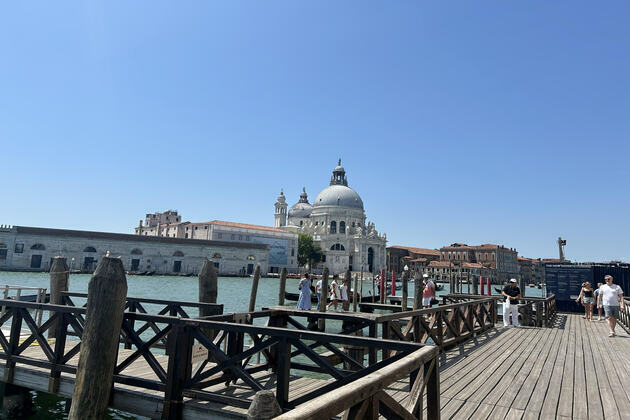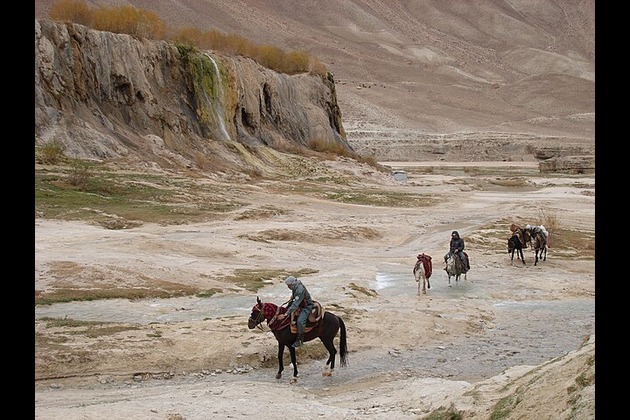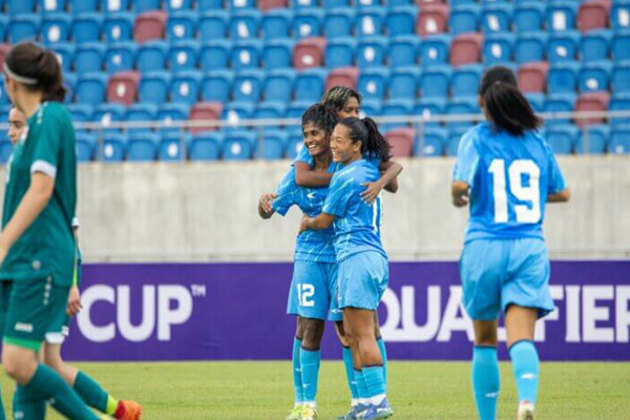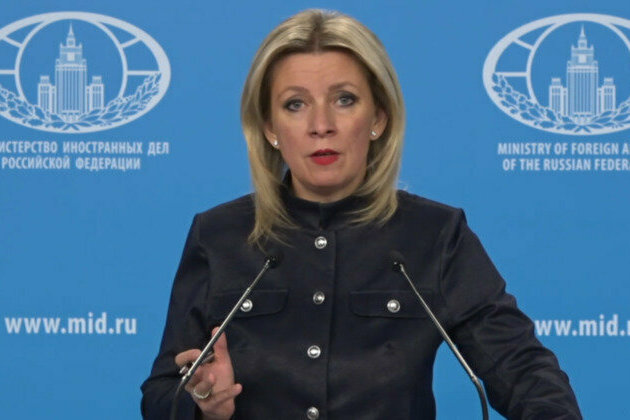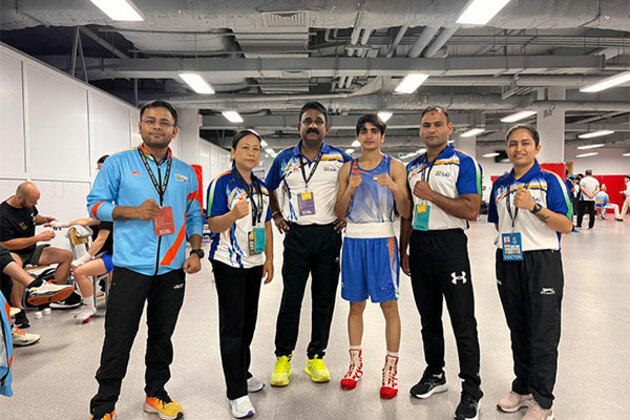Xi Jinping champions the cause of Global South
Xinhua
03 Jul 2025, 07:15 GMT+10
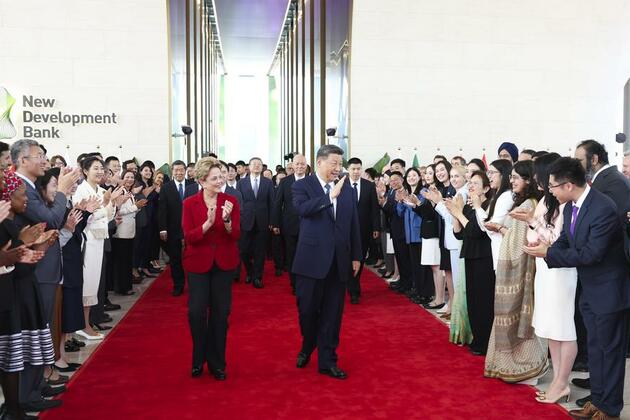
by Xinhua writer Jiang Hanlu
BEIJING, July 3 (Xinhua) -- On the banks of the shimmering Huangpu River that cuts through the Chinese metropolis of Shanghai sits the headquarters of the New Development Bank, co-founded by the BRICS countries more than a decade ago to foster the shared development of the world's emerging economies.
In his visit to this new landmark in China's financial center late April, Chinese President Xi Jinping told the bank's president and former Brazilian President Dilma Rousseff this multilateral institution has been a result of "a pioneering initiative for the Global South to seek strength through unity."
For the Chinese leader, the BRICS mechanism is a major platform for promoting cooperation among countries in the Global South. In the coming days, this year's BRICS summit will open in the Brazilian city of Rio de Janeiro under the theme of "Strengthening Global South Cooperation for More Inclusive and Sustainable Governance."
Xi's April visit to the bank demonstrates his long-standing commitment to bolstering the solidarity and common development of the Global South, amplifying the role of over 6 billion people in a world fraught with uncertainty and challenges unseen in a century.
COLLECTIVE RISE
"The collective rise of the Global South is a distinctive feature of the great transformation across the world," Xi observed when addressing the "BRICS Plus" Dialogue held in Kazan, Russia, in October last year.
Much more than a pure geographical or economic term, the Global South refers to a community of emerging markets and developing countries that share similar historical experiences, development stages and goals, and political pursuits.
The concept of "South" was first coined in Antonio Gramsci's work "The Southern Question" written in 1926, in which the Italian Marxist philosopher highlighted the development gap between northern and southern Italy.
The rise of the Global South has been decades in the making. Back in 1955, the landmark Bandung Conference convened in Indonesia under the flag of solidarity, friendship and cooperation, marking the awakening of the Global South after centuries of Western colonial rule. In 1964, the Group of 77, a coalition of developing countries, was established in Geneva within the United Nations to promote South-South cooperation and form a new international economic order.
Through extensive cooperation, the countries of the Global South have emerged as a key driver of global growth. These countries have contributed as much as 80 percent of global growth over the past 20 years, with a share of global GDP increasing from 24 percent four decades ago to more than 40 percent today.
China, the world's largest developing country, is a natural member of the Global South. In 2004, the United Nations Development Programme included China in its list of more than 130 Global South countries in a report titled "Forging a Global South." Some Westerners have challenged China's position that it is part of the Global South. In response, Xi has provided a clear answer.
"As a developing country and a member of the Global South, China breathes the same breath with other developing countries and pursues a shared future with them," Xi once said.
Historically, China has suffered from Western colonialism and imperialism, much like other developing countries, said Cavince Adhere, a Kenya-based international relations scholar.
"Even today, despite inordinate success by Beijing to rise from the backwaters of development to be the second-largest economy in the world, as well as the first developing country to eliminate extreme poverty, China still faces common development challenges, and holds similar views regarding the current international order and global governance," he added. "Because of this, China has emerged as a strong champion for the legitimate rights and interests of many Global South countries."
LEAVING NO ONE BEHIND
Ahead of Xi's state visit to Brazil late last year, the Portuguese edition of the book "Up And Out Of Poverty" was officially launched in Rio de Janeiro. The book, first published in 1992, outlines Xi's perspectives on poverty eradication, local governance, reform and development when he worked in the formerly impoverished prefecture of Ningde in China's southeastern Fujian province.
Poverty has long ranked atop among the problems facing the Global South. With Xi's steadfast commitment and strong leadership, China has eradicated absolute poverty in its rural areas, a feat that no one had accomplished in China for thousands of years.
At the G20 Summit in Rio de Janeiro last year, Xi spoke with quiet conviction, recounting his lifelong dedication to poverty alleviation, from his time as a local official to his current role as China's top leader.
In his speech, Xi said a weaker bird can start early and fly high. "If China can make it, other developing countries can make it too. This is what China's battle against poverty says to the world," he said.
Xi's "weaker bird" metaphor originated from his book on poverty. His speech struck a chord with several foreign leaders, who asked the Chinese delegation whether they could share a copy of the speech.
The Chinese leader has placed great emphasis on development. For him, "development holds the master key to solving all problems," particularly when the global development gap continues to widen. Over the years, Xi has also been active in rallying global efforts to put development back on the international agenda as a central priority.
When attending the general debate of the 76th session of the UN General Assembly in 2021 via video, Xi proposed the Global Development Initiative, an international policy framework to promote sustainable development around the world. To date, the initiative has garnered the support and participation of over 100 countries and 20 international organizations.
To boost common development in the Global South, Xi has been promoting practical cooperation through major infrastructure projects within the Belt and Road Initiative. During his foreign visits over the years, Xi would launch or visit major projects, such as the Chancay Port in Peru, the Dushanbe No. 2 power plant in Tajikistan and the Colombo Port City in Sri Lanka. When hosting leaders of the Global South in Beijing, Xi would also discuss with them major projects for cooperation during their talks.
Xi believes that the Global South should be the main driving force for common development and that "On the path to modernization, no one, and no country, should be left behind." He also supports countries of the Global South exploring paths of modernization tailored to their distinctive national conditions, rather than following Western development models.
Also at last year's G20 summit in Rio de Janeiro, Xi outlined eight measures in support of Global South cooperation, ranging from high-quality Belt and Road cooperation to boosting development in Africa. Months earlier, at the Forum on China-Africa Cooperation in Beijing last year, Xi unveiled 10 partnership actions and granted zero-tariff treatment on all product categories to the least developed countries with which it has diplomatic relations.
Gu Qingyang, associate professor at the Lee Kuan Yew School of Public Policy at the National University of Singapore, said, "China can play a positive role in the development of Global South countries," adding that Chinese technology and expertise in industrial development can support the modernization of the Global South's various regions.
EMPOWERING GLOBAL SOUTH IN INTERNATIONAL GOVERNANCE
As Xi once observed, in the face of global changes of the century, pursuing modernization and working for a more just and equitable international order are the sacred historic missions of Global South countries.
Xi described the BRICS countries as "leading members of the Global South," calling for building BRICS into "a primary channel for strengthening solidarity and cooperation among Global South nations and a vanguard for advancing global governance reform."
Since becoming Chinese president in 2013, Xi has always been a steadfast champion of BRICS cooperation. In Xiamen, he advocated for the "BRICS Plus" program at the 2017 BRICS summit, calling for more active participation from other emerging markets and developing nations. He played a crucial role in propelling the BRICS' historic expansion in 2023, ushering in the era of greater BRICS cooperation.
Effective coordination between BRICS members and other countries in the Global South has been adding more bricks to the global governance architecture. The New Development Bank exemplifies this effort.
Xi said the bank serves as "an important emerging force in the international financial system," which should work to "make the international financial system fairer and more equitable and effectively enhance the representation and say of emerging markets and developing countries."
Over the years, China, under Xi's leadership, has taken concrete steps to advocate for developing countries, help Global South countries enhance their representation and voice in international governance, and promote a more just and equitable international order.
At the 2022 G20 summit in Bali, Indonesia, China took the lead in supporting the African Union (AU)'s membership in the G20. In their meeting on the sidelines of the summit, then Senegalese President Macky Sall, who was also the AU chairperson that year, thanked Xi for being the first to publicly support the AU's G20 membership.
The global leadership today remains lopsided, and rebalancing this skewed system is a shared imperative for both the Global North and South, said Paolo Magri, managing director and chair of the advisory board of the Italian Institute for International Political Studies, a think tank.
"Global South countries marching together toward modernization is monumental in world history and unprecedented in human civilization," Xi said at the "BRICS Plus" Dialogue in Kazan, Russia, last year, while acknowledging that "the road to prosperity for the Global South will not be straight."
"No matter how the international landscape evolves, we in China will always keep the Global South in our heart, and maintain our roots in the Global South," Xi pledged.
(Xinhua reporter Yan Yujing in Nairobi also contributed to the story.)
 Share
Share
 Tweet
Tweet
 Share
Share
 Flip
Flip
 Email
Email
Watch latest videos
Subscribe and Follow
Get a daily dose of Afghanistan Sun news through our daily email, its complimentary and keeps you fully up to date with world and business news as well.
News RELEASES
Publish news of your business, community or sports group, personnel appointments, major event and more by submitting a news release to Afghanistan Sun.
More InformationInternational
SectionTurkey, France battle wildfires amid early Europe heatwave
ISTANBUL/PARIS/BRUSSELS: As searing temperatures blanket much of Europe, wildfires are erupting and evacuation orders are being issued...
Venetians protest Bezos wedding with march through the town
VENICE, Italy: Over the weekend, hundreds of protesters marched through the narrow streets of Venice to voice their opposition to billionaire...
New French law targets smoking near schools, public spaces
PARIS, France: France is taking stronger steps to reduce smoking. A new health rule announced on Saturday will soon ban smoking in...
Trump hints at DOGE investigation of Musk subsidies
WASHINGTON, DC - U.S. President Donald Trump on Tuesday claimed Elon Musk's success has been built on government subsidies. Without...
Native leaders, activists oppose detention site on Florida wetlands
EVERGLADES, Florida: Over the weekend, a diverse coalition of environmental activists, Native American leaders, and residents gathered...
Beijing crowds cheer AI-powered robots over real soccer players
BEIJING, China: China's national soccer team may struggle to stir excitement, but its humanoid robots are drawing cheers — and not...
Central Asia
SectionTaliban seeks tourism revival despite safety, rights concerns
KABUL, Afghanistan: Afghanistan, long associated with war and instability, is quietly trying to rebrand itself as a destination for...
Xi Jinping champions the cause of Global South
by Xinhua writer Jiang Hanlu BEIJING, July 3 (Xinhua) -- On the banks of the shimmering Huangpu River that cuts through the Chinese...
India a step away from Women's Asian Cup qualification after blanking Iraq
Chiang Mai [Thailand], July 2 (ANI): The Indian women's football team produced another commanding performance in the AFC Women's Asian...
Baku blocking consular access to jailed Russians Moscow
The hostile steps seriously damage bilateral relations, Foreign Ministry spokeswoman Maria Zakharova has said Azerbaijan has not...
Minakshi, Pooja Rani assure India of two medals on Day 3 at World Boxing Cup Kazakhstan
Astana [Kazakhstan], July 2 (ANI): Minakshi (48kg) and Pooja Rani (80kg) guaranteed India two medals on Day 3 of the World Boxing Cup-Astana,...
Russia should abolish diaspora groups official
Government agencies should not deal with illegal entities, Marina Akhmedova has said Ethnic diaspora groups should be banned in Russia,...


